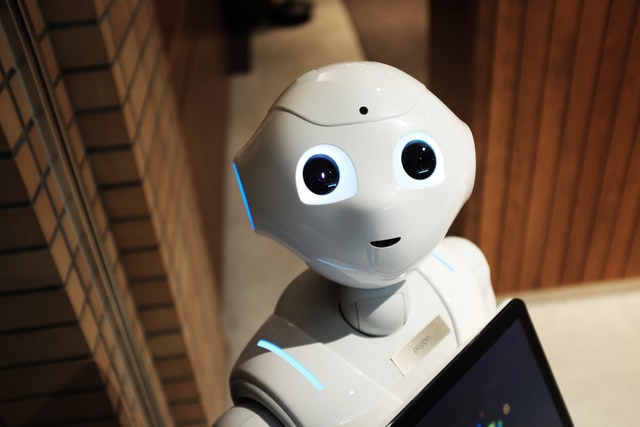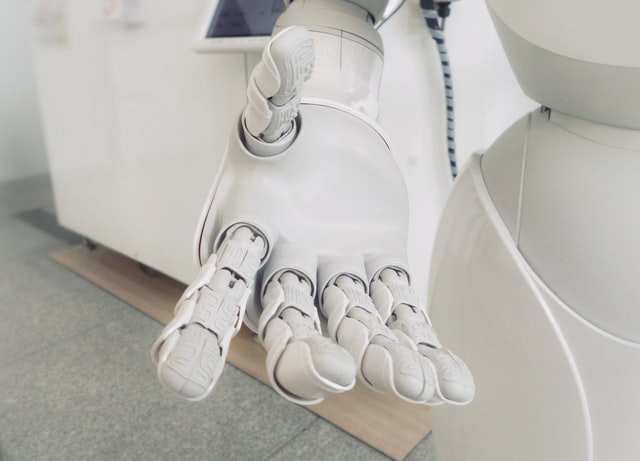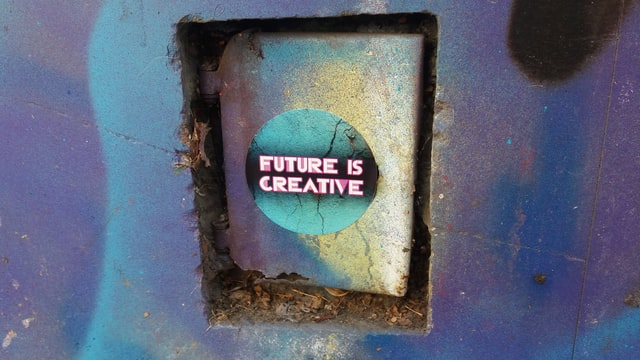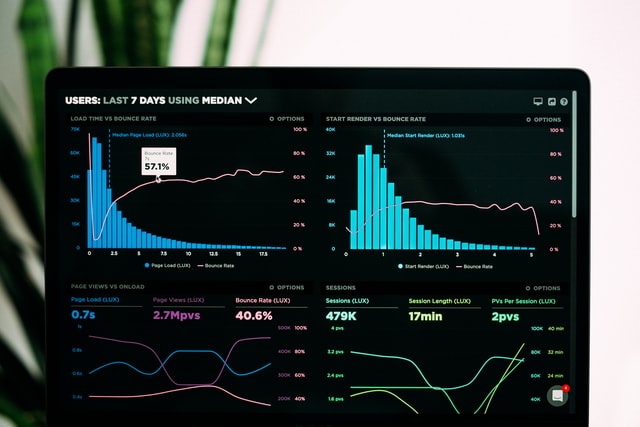APRIL 20, 2022
Future of work: artificial intelligence

Will robots take away our jobs?
Everyone wants to have a say when it comes to artificial intelligence (AI), but the ideas about it differ widely. Skeptics claim that humans will be replaced by robots and machines will take over the world. Others dismiss it and believe that our generation will no longer be affected.And then there's Arnold Schwarzenegger in The Terminator, who has us see AI as an unknown life form that is hurtling toward us from the future at increasing speed to enslave humanity.
We want to take a completely new look at the topic, which allows us to look a little more positively into the future.
The concept of artificial intelligence divides minds. Some see AI as the savior of
stupid forms of work. Others are afraid of being fired soon because advanced
technologies are threatening our jobs.
The fact is: The change in the world of work through AI will be far-reaching and in the
next few years it will become a "multi billion dollar industry" (Statistics, 2020) develop.
But does this really make our manpower useless or will robots (let) us create a world
free from all cares and worries?
Neither nor. First and foremost, AI is a buzzword that is used in an inflationary manner, shaped
by the media and becoming more and more independent through public opinion. We would like
to take a very realistic look at the topic of AI.
Future scenarios through AI: bleak or brilliant?
Imagine that you have rocked your high school diploma, successfully mastered your studies and done an internship abroad. What now follows is the application phase, in which the bitter disappointment comes: "Sorry, we're not hiring anymore. Our robots just do the job better.” Ouch.Robots do not need to be paid. You don't need a break. No holiday. And work faster and more accurately. Yes, the job market is getting competition from emotionless beings.
They will no longer just drive through our living rooms as vacuum cleaners or quote Google entries as Alexa. Robots will control machines. deliver packages. control cars. distribute parking tickets. And even perform surgeries.
But does that really mean that there will soon not be enough jobs for everyone?
In fact, robots have long been able to take over routine tasks with the same recurring processes - such as employee planning at DM or storing parcels at Amazon. And yes, they also do this more efficiently and faster than humans.
“Semmi”, the service employee at Deutsche Bahn, has long since proved that human communication is being replaced by computers. The robot lady can answer the individual questions of the customers in a targeted manner. And in all languages. With a red bandana and polite. But without emotions.
Work steps that always require the same hand movements or require analytical and mathematical calculations are being replaced by machines. When, however, remains uncertain.
Of course, it depends on the costs that the new technologies will entail in the future. And which companies want to take the path of artificial intelligence at all.
Human vs Machine
Intelligence has many sides. On the one hand, it is the solution to strategic issues. On the other hand, it is also the awareness of it. Robots might be able to reserve a seat for you in the restaurant or give you information. But you'll never know how that feels.What the robots lack are emotions and empathy.
Social skills cannot be replaced. A loving touch from the caretaker. The bartender whose smile is infectious. Or a playful tickle by the kindergarten teacher. Interpersonal relationships and trust are necessary to react sensitively to the complexity of the world. And that's how it will always be.
In addition to the socially competent, computer scientists, programmers and developers are clearly among the winners of AI. Because it needs people behind the machines who understand complex algorithms.
Creators, teachers, and entertainers will also stay on the scene. Robots have long been able to compose songs or edit films. But artists live through our interpretations and who would hang a painting of a robot in their house?
But have a robot search 500 books for information on Julius Caesar's campaigns? Rather.
Co-working between humans and robots
Robots make our work easier, but the future does not lie in replacing human labour, but in collaboration.However, we are certain of one thing: the future belongs to man and machine working hand in hand. So maybe the robot will perform an operation. But the human being has the task of taking care of his patient sensitively afterwards. There's more time for that now. Recovery is always a social act. Collaborative robots have long been used in the automotive industry and in journalism, interacting with flesh-and-blood employees.
In addition, robots are masters of forecasting. They evaluate huge amounts of data within a very short time and recognize patterns in real time.
You know the probabilities of car accidents. Can diagnose cancer. And predict system failures. All of this helps people to improve processes and make our society more fluid. Whether developing cities, working flow in factories or maintaining health - robots predict and we act.
So we move forward with optimism and look forward to robots taking over monotonous and predictable tasks as our colleagues and to the fact that we devote ourselves to complex, creative and social things. Of course, this is not thought through to the end, because many people feel comfortable with recurring tasks and worry about being unemployed soon. There will always be many opponents, because AI makes professional life more complex for the individual.
However, we should also be aware that computers only ever replace human labor in one discipline and that there is no robot that can do everything. At least not yet.
Therefore, we want to look positively to the future and not be put off by the change. But this requires a lot of preparation.
The future is now
We as a society are responsible for ensuring that AI does not take on power-grabbing forms. This requires a new definition of values and an identification of all challenges and risks.AI will take away jobs from us, but at the same time create numerous new fields of activity. Whether life coach, health provider or beauty designer - creativity is finally moving back into focus and industrial exploitation may soon be in the background. The unconditional basic income can cushion unemployment a little.
Studies also confirm that the digital transformation will eliminate as many jobs as it creates new ones (Institute for Labor Market and Vocational Research, 2019 )
Politicians and entrepreneurs are now in demand to prepare us for further education and instruct us in "lifelong learning". We need a comprehensive understanding of technology and must always control what data we feed the computers.
If you are not yet sure how your personal future will continue, you will certainly make good progress with math or computer science. Because only if you understand how AI ticks, you are master of the situation and can advance our world.
Stay flexible Be prepared to learn something new from time to time and not do the same job for the rest of your life. We promise you: there are definitely worse things.
Our conclusion: Technical progress holds more opportunities than risks and we should consciously take the step towards AI. The new world of work is digital and if you want to react to it, we are happy to assist you.
How do you feel about artificial intelligence? Does it scare you or do you see it as an opportunity? We are curious about your opinion!






